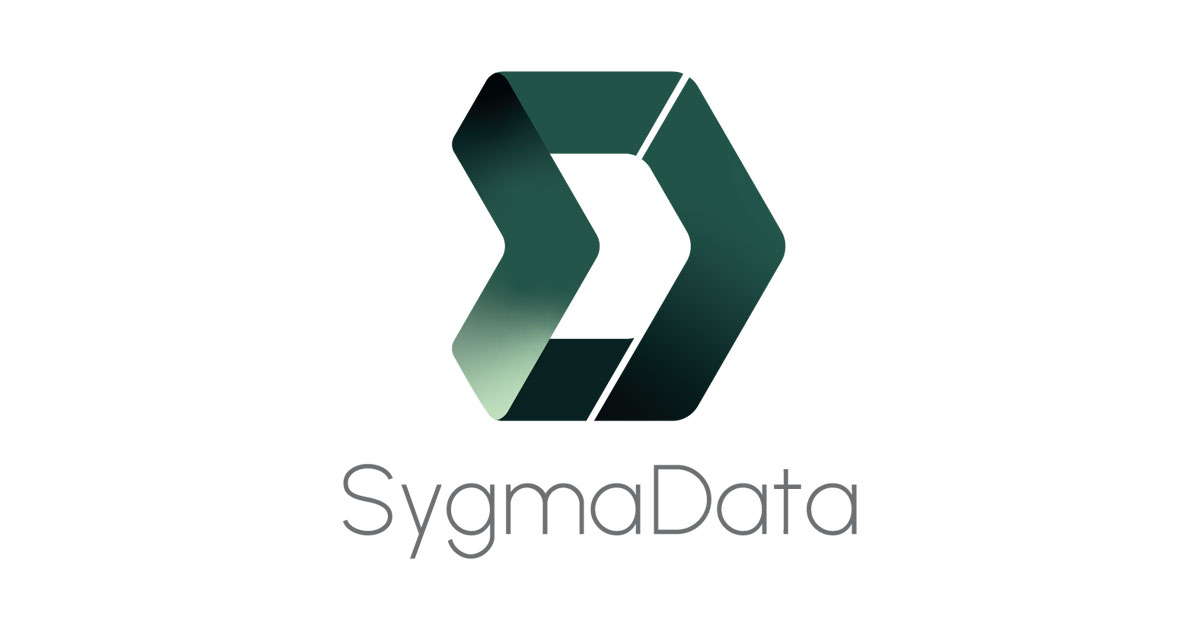Download the PDF document here: How does sygmadata.ai manage sovereignty?
how does Sygma Data manage sovereignty?
Discover how Sygma Data ensures data and AI sovereignty through localized infrastructure, compliance with GDPR, data fabric architecture, and robust governance strategies.
Table of Contents
Importance of Data Sovereignty. 4
Challenges in Data Management 4
Sygmadata.ai’s Approach to Sovereignty. 5
Data Localization Strategies. 5
Compliance and Governance Frameworks. 5
AI and Machine Learning Integration. 7
Data Governance and Compliance. 7
Implementation of Intelligent Data Fabrics. 8
Challenges in Data Management 8
Adapting to Regulatory Environments. 8
Focus on Education and Inventory Management 8
Impact on Businesses and Consumers. 9
Transparency and Accountability. 9
Consumer Trust and Data Protection. 9
Challenges and Opportunities. 9
summary
Sygma Data is a platform that emphasizes the principles of data and artificial intelligence (AI) sovereignty, focusing on the secure and compliant management of data within its operational framework. Data sovereignty refers to the concept that data is subject to the laws and regulations of the country in which it is collected or stored, an issue of increasing importance in a digital landscape marked by rapid data generation and stringent legal requirements. Sygmadata.ai’s commitment to data sovereignty ensures that organizations can effectively navigate the complexities of data management while maintaining regulatory compliance, thereby safeguarding sensitive information and enhancing consumer trust.[1][2]
Sygmadata.ai adopts robust data localization strategies that mandate data storage and processing within the jurisdictions of data collection. This approach not only aligns with local regulatory frameworks, such as the European Union’s General Data Protection Regulation (GDPR), but also mitigates the risks associated with cross-border data transfers, a concern highlighted by challenges faced by major corporations in recent years.[3][4] By emphasizing localized control of data and comprehensive governance measures, Sygmadata.ai provides organizations with a transparent and accountable method of managing their data assets, thus addressing prominent issues within data sovereignty discussions.[2][5]
To enhance its commitment to sovereignty, Sygmadata.ai operates with a dedicated infrastructure that enables organizations to independently manage their data while ensuring compliance with global regulatory standards. This infrastructure strategy facilitates efficient scaling of AI initiatives across various jurisdictions, as organizations retain ownership and control over their data assets. However, navigating the intricate landscape of data localization and compliance presents challenges, such as increased operational costs and complexity, which Sygmadata.ai seeks to address through strategic partnerships and innovative technological solutions.[6][7]
In summary, Sygmadata.ai exemplifies a forward-thinking framework for managing data sovereignty in the context of AI and data governance. By prioritizing local control and compliance, the platform not only supports organizations in meeting their legal obligations but also fosters a culture of transparency and accountability, ultimately empowering businesses to thrive in an increasingly data-driven world.[8][9]
Data Sovereignty
Data sovereignty refers to the principle that data collected or stored within a specific country or region should be governed by that location’s laws and regulations[1][2]. This concept has become increasingly significant in the digital age, where data generation and collection occur through various channels such as social media and eCommerce. Governments are concerned about protecting sensitive personal and business data, as well as maintaining control over data with potential national security implications[2][3].
Importance of Data Sovereignty
The implications of data sovereignty extend across legal and economic dimensions. Legally, it ensures compliance with data protection laws and intellectual property rights. Economically, it influences cross-border data flows, trade agreements, and the competitive landscape for businesses operating globally[1][4]. Organizations must be aware of their responsibilities regarding data based on its geographical location, as the legal rights of data subjects depend on where their data is stored[5].
Regulatory Frameworks
Data sovereignty is governed by various legal frameworks that differ by region. A prominent example is the European Union’s General Data Protection Regulation (GDPR), which imposes strict privacy rules on businesses that store or process the personal data of EU residents, irrespective of the data’s location[3][6]. This framework necessitates that companies demonstrate compliance with both local laws and GDPR when handling data, creating complexities for international operations.
Challenges in Data Management
To effectively manage data sovereignty, organizations must implement robust data governance strategies. This includes documenting and understanding the entire data lifecycle—from collection to storage to processing and transfer—to ensure compliance with relevant regulations[7]. The absence of effective governance can lead to operational inefficiencies and increased risks of data mishandling, which can incur significant penalties and damage a company’s reputation[7][8].
Sygmadata.ai’s Approach to Sovereignty
Sygmadata.ai prioritizes the principles of data and AI sovereignty, emphasizing the importance of secure, compliant, and locally controlled infrastructure in its operations. The platform’s definition of sovereign AI encompasses the complete creation, deployment, and governance of AI systems, ensuring that data sovereignty and regulatory compliance are at the forefront of its technological framework[9].
Data Localization Strategies
Sygmadata.ai adheres to stringent data localization practices, which require that data be stored and processed within the jurisdiction where it is collected. This approach not only ensures compliance with local regulations but also enhances consumer trust by safeguarding sensitive information under relevant legal protections[2]. By keeping data localized, the platform mitigates risks associated with cross-border data transfers and the complexities of international data regulations, as highlighted by recent challenges faced by organizations like Meta[10].
Compliance and Governance Frameworks
To align with global regulatory standards, Sygmadata.ai incorporates comprehensive governance frameworks that define decision rights and accountability mechanisms. The platform actively implements robust data protection measures, such as encryption and access controls, to protect sensitive data from unauthorized access[2]. Furthermore, Sygmadata.ai emphasizes transparency in its AI decision-making processes, providing clear audit trails and documentation that track data usage and consent to foster accountability and compliance with regulations like GDPR and CCPA[11].
Infrastructure Control
Sygmadata.ai’s commitment to sovereignty is also evident in its infrastructure strategy. The platform operates with a focus on owning every layer of the AI stack, from localized data storage to independent model orchestration. This localized control allows organizations to access and manage their data securely, while enabling AI models to operate without dependency on external control points[9]. This infrastructure approach not only streamlines compliance efforts but also facilitates the rapid scaling of AI initiatives across various jurisdictions.
Challenges and Solutions
While embracing data sovereignty presents significant advantages, Sygmadata.ai acknowledges the challenges posed by data localization and regulatory compliance. The need for organizations to navigate complex data handling practices and manage compliance across multiple regions can increase operational costs and complexity[2]. To address these challenges, Sygmadata.ai collaborates with partners that understand these requirements and can provide solutions that simplify AI initiatives while ensuring data remains compliant and secure[10].
Through these strategic approaches, Sygmadata.ai exemplifies a modern framework for managing data sovereignty, ensuring that businesses can leverage AI technology while adhering to local and global data regulations.
Technologies Utilized
Sygmadata.ai employs a range of advanced technologies to ensure data sovereignty and facilitate effective data management.
Data Fabric Architecture
One of the core technologies utilized is data fabric architecture, which provides a unified framework for integrating, accessing, and analyzing data across various systems and infrastructures. This architecture addresses the historical limitations of traditional data management systems, enabling seamless data flow and fostering business agility by breaking down silos that often hinder decision-making processes [12][13]. By employing a data fabric, Sygmadata.ai can enhance operational efficiency and drive competitive advantage in a data-driven environment [7].
AI and Machine Learning Integration
Sygmadata.ai also integrates artificial intelligence (AI) and machine learning (ML) technologies, which optimize data management capabilities and enhance operational processes. The incorporation of these technologies allows for automated data enrichment, improving data quality and ensuring that the information used is accurate and relevant. AI and ML are pivotal in enabling real-time insights and facilitating advanced analytics, which are crucial for maintaining compliance with data sovereignty regulations [14][12].
Knowledge Graphs
The implementation of knowledge graphs further supports Sygmadata.ai’s commitment to data sovereignty. Knowledge graphs organize and categorize data assets, enabling efficient discovery and access to relevant information [13]. This structured approach not only enhances data usability but also reinforces the transparency and accountability required in maintaining sovereignty over data.
Data Governance and Compliance
Robust data governance frameworks are integral to Sygmadata.ai’s technological stack. These frameworks establish clear policies for data classification, privacy, security, and compliance, ensuring that all data management practices align with regulatory requirements [7]. By implementing comprehensive data governance protocols, Sygmadata.ai can maintain high standards of data quality while safeguarding sensitive information, thus enhancing trust among stakeholders.
On-Prem Data preparation
In order to comply with the rules and regulations, being internal or external, Sygma Data offers the possibility to prepare data on-prem with a choice of anonymisation, tokenisation and reject un-necessary data. This allows to be certain that no critical data leaves the premises being visible. It is a unique development and a unique possibility compared to other data fabrics on the market. This also allows a better grip on security.
Case Studies
Implementation of Intelligent Data Fabrics
Sygmadata.ai has engaged in a series of case studies that highlight the practical applications of intelligent data fabrics in various sectors. A notable example is seen in the energy sector, where companies like Shell have successfully integrated sensor data with AI-driven models to enhance predictive maintenance and resource management. These implementations have led to significant operational improvements, demonstrating the effectiveness of intelligent data solutions in real-world scenarios[15].
Challenges in Data Management
The case studies also reveal the complexities organizations face in managing data. For instance, Sygmadata.ai’s research indicates that current interactions between Transmission System Operators (TSOs) and Distribution System Operators (DSOs) often address recurring issues, such as planned outages and grid reinforcements. Despite some collaboration, the level of coordination remains insufficient for maximizing economic benefits[16]. This highlights the necessity for effective data exchange protocols to overcome barriers to efficient data management.
Adapting to Regulatory Environments
Sygmadata.ai’s approach includes a proactive strategy for navigating the complexities of data sovereignty laws, particularly in regions with less developed cloud infrastructures. For example, companies operating in the Middle East and North Africa (MENA) face challenges due to limited cloud service availability. To address this, adopting a multicloud strategy has become essential for ensuring regulatory compliance and operational efficiency[17]. This strategic response enables organizations to mitigate geographical limitations while adhering to local data mandates.
Focus on Education and Inventory Management
Another critical aspect identified in Sygmadata.ai’s case studies is the importance of cultivating a company-wide understanding of data sovereignty issues. Educating employees about these challenges helps organizations create and maintain an inventory of their data, which is crucial for effective compliance and risk management[18]. By fostering a mindset that prioritizes data sovereignty, Sygmadata.ai aims to empower organizations to better navigate the complexities of data handling in various jurisdictions.
Impact on Businesses and Consumers
Economic Implications
The intersection of data sovereignty and AI has profound implications for both businesses and consumers. Companies like Apple and Google are at the forefront of developing technologies that enhance consumer welfare, such as those aimed at managing health data for diabetics[19]. However, these advancements often coexist with practices that prioritize cost-saving over ethical considerations. For instance, while multinational corporations implement stringent procurement protocols to regulate supplier practices and ensure sustainability, smaller startups face substantial financial pressures that can hinder their growth and compliance efforts[20]. The financial burden of compliance can significantly affect operating margins, demonstrating the need for a balanced approach to regulation that considers the capacities of emerging enterprises.
Transparency and Accountability
Audits serve as critical mechanisms for enhancing market transparency and accountability, which are essential for fostering consumer trust. Reliable audits reduce information asymmetry, which is vital for encouraging investment and ensuring that businesses operate ethically[20]. In an era of increasing scrutiny, businesses must prioritize transparency in their data practices to maintain consumer confidence, especially as privacy regulations like GDPR evolve to address the complexities of data sovereignty in the AI landscape[18][21].
Consumer Trust and Data Protection
For consumers, the implications of data sovereignty are increasingly evident in the way their personal information is handled. Organizations are now recognizing data sovereignty as a fundamental aspect of business strategy, focusing on the full lifecycle of data management—from storage to transit[1]. This is crucial for sectors dealing with sensitive information, such as healthcare and finance, where the security of personal data is paramount. Consumers are increasingly aware of their rights regarding data privacy and are demanding greater control over how their information is used and stored[6].
Challenges and Opportunities
As multinational businesses navigate the complexities of data sovereignty, they face the challenge of balancing competitive advantage with regulatory compliance. The fragmented legal landscape necessitates a multifaceted approach that includes international cooperation, harmonized regulations, and innovative technological solutions such as encryption and decentralized data storage[6][22]. These strategies not only protect consumer data but also enable businesses to operate more efficiently across borders, ultimately fostering an environment conducive to innovation and growth.
References
[1]: Data sovereignty is a serious concern for critical infrastructure
[2]: What is Data Sovereignty | Challenges & Best Practices – Imperva
[3]: Data sovereignty and AI: Why you need distributed infrastructure – CIO
[4]: Data Sovereignty and AI: Why You Need Distributed Infrastructure
[5]: What Is Data Sovereignty? – Challenges and Considerations
[6]: Data Sovereignty and Legal Challenges in Digital Infrastructure
[7]: White paper – Sygma Data’s Data Fabric
[8]: White paper – What challenges are there in data quality for analytics ?
[9]: Sovereign AI & Data Sovereignty: Securing & Scaling Your AI – EDB
[10]: White paper – Cloud Act vs Sovereignty – Sygma Data SA
[11]: Importance of AI Compliance: How to Implement Compliant AI
[12]: Data Fabric: Understanding the Future of Data Management
[13]: Integrating Data Fabrics with Existing Data Infrastructures
[14]: White paper – Economics of Data Fabric ROI of Data Industrialisation …
[15]: White paper – From Data lake to Data Fabric in the world of Energy
[16]: White paper – Challenges of data management in … – Sygma Data
[17]: Unraveling the Essence of Data Sovereignty and Protection – comforte
[18]: How to Plan for Data Sovereignty in the Age of AI – Solutions Review
[19]: Digital Sovereignty and Global Data Business – English
[20]: AI Governance through Markets – arXiv
[21]: Data Sovereignty in the Age of AI | Who Owns Your Data? – RealTyme
[22]: AI, Data Sovereignty, and Compliance – ServiceNow Blog



